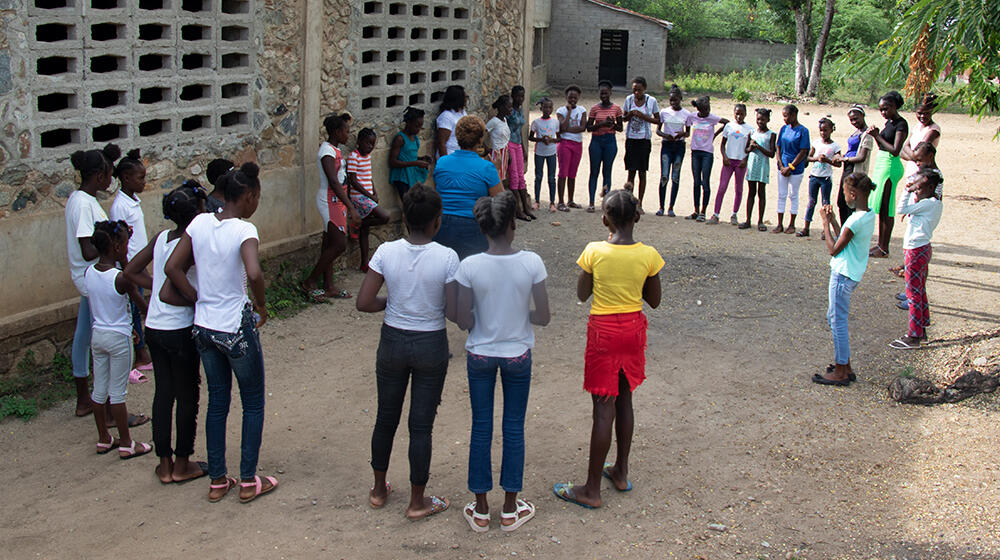Association Femmes Soleil d'Haïti (AFASDA) was able to reach 2,818 girls aged 10 to 14 and 15 to 19 years old out of the 3,000 programmed in the Spotlight project, pillar 3, in the 8 communes of North-East Haiti, thanks to in support of UNFPA. These 2,818 girls are part of “Espas Fanm” (Women’s Space) which is found in the said municipalities. Awareness raising continues to reach these 3,000 girls, indicates the AFASDA Board of Directors.
Sensitization
“We do upstream work to raise awareness among girls about sexual health and gender-based violence,” explains the Monitoring and Evaluation Manager. “The trained girls continue to spread the training through schools and churches in particular,” underlines Mathieu Jules. The strategy: is that more girls are reached and can pass on what they have learned.
Supported
AFASDA has a support component which is carried out in “Safe Spaces”. The abuse survivor will find professionals to meet her needs. Since the launch of the project, AFASDA has provided psychological and social assistance to around 1,600 women survivors of violence.
Trained mentors
“Spotlight is a project to say no to violence and provide services to women and girls who are victims of violence,” says the Executive Director. “There are trained mentors numbering 41 young women,” notes Elvire Eugène. These mentors know their bodies as well as issues of violence.
Progress
In Caracol, girls are sometimes pregnant from the age of 12. They have a space to talk about it. The positive changes obtained, according to AFASDA: “Fewer adolescents pregnant before the required age. They talk about it in safe spaces. Psychologists are available. There are helpers. There is “Espas Fanm”, a club where girls can say whatever they want. It is a space to testify and do prevention. The girls are emancipated. They know their body.”
Mentees and mentors speak out
We attended sessions in safe spaces. Mentees from Fort Liberté expressed themselves as follows:
“In meetings we get to know each other. We learn how to respect each other, how to talk to parents and what precautions to take on a daily basis.”
“We give the girls confidence,” says a mentor from Trou du Nord. “They form a circle of friends. They learn solidarity and understanding of their bodies.”
Active involvement
The community is actively involved in the Spotlight project in the North East. AFASDA organizes community meetings when the association will install a safe space and an “Espas Fanm”. These meetings allow the community's grievances to be addressed. It is the community that offers spaces. In girls' spaces, parents know where the girls are, know their contacts and the type of activity they undertake.
As part of the new 2023-2027 country program cycle, UNFPA in Haiti is committed to promoting the well-being of adolescents and young people. In this perspective, UNFPA signed cooperation agreements with the principal recipient of the Genre-URamel Consortium, in which AFASDA participates as a sub-recipient, as well as with DSNE/MSPP, implementing partners operating in the North-East department.
This collaboration aims to support and document the best practices put in place by these local partners thanks to the generous support of the European Union through the Spotlight initiative in Haiti. The implementation of the project, pillar 3, is ensured by UNFPA in Haiti.
Text: Vario Serant
Photos: Wilguens Bery


